Introduction to the Rise of Digital Nomadism
In recent years, the allure of the open road has captivated many professionals, leading to a surge in digital nomadism. With remote work becoming increasingly accessible, more individuals are ditching the conventional office environment in favor of a more adventurous lifestyle, traveling in recreational vehicles (RVs) while staying connected to their careers. For these digital nomads, the freedom to work from anywhere—be it a mountain vista, a lakeside campsite, or a forest retreat—is the ultimate dream.
However, with this newfound freedom comes a unique set of challenges. Safety on the road is paramount, especially when your RV serves as both your home and your office. Balancing work, travel, and safety requires careful planning and a proactive approach. Whether you’re a seasoned nomad or just starting out, equipping yourself with the right knowledge is crucial to enjoying a smooth and secure journey.
Understanding the Importance of Safety on the Road
Safety is one of the top concerns for RV travelers. With your RV functioning as a mobile home, it carries many of the same responsibilities as a traditional residence, but with the added complexity of being constantly on the move. Ensuring your safety while driving, parking, and camping is essential not only for your personal well-being but also for the protection of your equipment and the continuity of your work. From physical threats like theft to digital dangers like cyber-attacks, RV safety encompasses a wide range of considerations.
Pre-travel RV Checklist for Nomads
Before hitting the road, it’s important to perform a comprehensive pre-travel safety check on your RV. Here are some key items to include:
- Tires: Inspect your tires for wear and tear, and check the air pressure to prevent blowouts. Properly inflated tires will also improve fuel efficiency.
- Lights: Ensure that all exterior lights, including brake lights, turn signals, and headlights, are in working order.
- Brakes: Have your brakes checked regularly, and make sure they are responsive.
- Fluid Levels: Check oil, transmission fluid, brake fluid, and coolant levels.
- Roof and Seals: Inspect the roof for leaks or damage and ensure seals around windows and doors are intact to prevent water infiltration.
- Fire Extinguisher: Make sure your RV is equipped with a working fire extinguisher and that you know how to use it.
- Also, a functioning carbon monoxide and smoke detector.
- Emergency Kit: Keep a well-stocked emergency kit that includes first-aid supplies, a flashlight, extra batteries, and roadside assistance tools.
- Propane System: A qualified RV technician should check your propane system for leaks and ensure all connections are secure yearly.
With these steps, you can begin your journey with confidence, knowing your RV is well-prepared for the road ahead.
Securing Your Mobile Haven: Preventing Break-ins and Theft
Best Practices for Securing an RV
An RV is more than just a vehicle—it’s your home on wheels. As such, securing it against break-ins and theft is just as important as protecting a traditional house. Because RVs often contain valuable items like laptops, cameras, and other equipment, they can be a target for thieves. To minimize this risk, consider the following best practices:
- Park in Safe Areas: Always research campsites, parking areas, and rest stops before parking overnight. Choose well-lit, secure locations whenever possible.
- Blend In: Try not to advertise that you’re a digital nomad. Avoid posting your exact location on social media in real-time and don’t leave valuables visible through windows.
- Lock All Doors and Windows: This may seem obvious, but it’s easy to forget when making a quick stop. Ensure all entry points are locked, including storage compartments and the driver’s side doors.
Investing in Quality Locks and Alarm Systems
For added protection, it’s wise to invest in high-quality locks and alarm systems designed specifically for RVs. Here are some security upgrades to consider:
- Deadbolt Locks: Install deadbolt locks on all entry doors to make break-ins more difficult.
- Security Cameras: Many digital nomads install wireless cameras that can stream footage to their smartphones, allowing them to monitor their RV remotely.
- Motion-Activated Lights: These lights can deter would-be thieves by illuminating the area around your RV when they detect movement.
- RV-Specific Alarm Systems: These systems are designed to protect both the interior and exterior of your RV, including sensors for windows, doors, and even gas lines.
Tips for Safely Storing Valuables
When traveling as a digital nomad, you likely carry expensive electronics and personal items. To reduce the risk of theft:
- Use a Safe: Store important documents, cash, and smaller valuables in a bolted-down safe.
- Discreet Storage: Hide larger items like laptops in inconspicuous places when not in use. Some RVs have secret compartments that can be utilized for added security.
- Backup Your Data: Since you depend on your electronic devices for work, regularly back up your data to the cloud in case of theft or loss.
Staying Connected Safely: Digital Security on the Go
Importance of Secure Internet Connections
Digital nomads rely heavily on the Internet to stay connected with clients, coworkers, and the rest of the world. However, public Wi-Fi networks often lack security, making them vulnerable to hackers. Whether you’re working from a café, a campground, or your RV itself, ensuring a secure internet connection is essential for safeguarding your sensitive information.
Using VPNs for Secure Remote Work
A Virtual Private Network (VPN) is an indispensable tool for digital nomads. VPNs encrypt your internet connection, making it more difficult for cybercriminals to intercept your data. This is especially important when accessing confidential work files or personal accounts. Choose a reputable VPN service with strong encryption and a no-logs policy.
Protecting Personal Information from Digital Threats
In addition to using a VPN, consider these additional strategies to enhance your digital security:
- Two-Factor Authentication (2FA): Enable 2FA on all your accounts to add an extra layer of protection. Even if a hacker obtains your password, they’ll need a second form of identification to access your account.
- Strong Passwords: Use complex, unique passwords for each of your accounts. A password manager can help you keep track of them.
- Secure Devices: Ensure that all of your devices, from laptops to smartphones, are protected with encryption and updated regularly with the latest security patches.
Avoiding Hazards on the Highways: Driving Safety for Nomads
Safe Driving Tips for RVers
Driving an RV requires more caution and skill than operating a standard vehicle. Due to their size and weight, RVs handle differently, especially on highways and in busy areas. Here are some tips to stay safe behind the wheel:
- Slow Down: RVs take longer to stop than regular cars, so it’s important to maintain a safe speed and allow extra space between you and the vehicle in front of you.
- Use Mirrors: Always check your mirrors and blind spots before changing lanes, as RVs have larger blind spots than cars.
- Plan Your Route: Some roads may not accommodate larger RVs, so plan your route ahead of time using apps or GPS systems designed for RV travel. We love our Garmin GPS unit.
Pam and I spent a lot of time planning our route to our desired destination. With over two hundred thousand miles traveling in RVs since 2008, we discovered early on that there is a safe route and the shortest distance route. Sometimes, the shortest-distance route is not the best for RVs!
Understanding RV-Specific Road Regulations
Each state or country may have different road regulations regarding RV travel. For example, some areas restrict where RVs can park or camp, while others have specific speed limits for larger vehicles. Familiarize yourself with these regulations before traveling, as ignorance of the law could lead to fines or unsafe situations.
Handling Adverse Driving Conditions and Emergencies
Mother Nature can be unpredictable, and it’s essential to know how to handle your RV in adverse conditions:
- Rain: Reduce your speed and increase your following distance, as RVs are prone to hydroplaning.
- Wind: High winds can make it difficult to control your RV. If you feel the wind pushing you, it’s best to pull over and wait for conditions to improve.
- Tire Blowouts: In the event of a blowout, keep a firm grip on the steering wheel and gradually slow down while pulling off to the side of the road. Don’t immediately get on the brakes! That will make the problem worse!
Keeping Your Mobile Office Operational: RV Maintenance Tips
Regular Maintenance Schedules for RVs
Regular maintenance is key to preventing breakdowns and ensuring your RV remains in top condition. Some maintenance tasks to schedule regularly include:
- Oil Changes: Keep track of when your RV or tow vehicle needs an oil change based on the manufacturer’s guidelines.
- Tire Rotation and Alignment: Rotate your tires to ensure even wear, and get an alignment to prevent uneven tire wear.
- Inspect Seals and Roof: Leaks can cause serious damage to an RV, so routinely inspect and maintain seals around doors, windows, and the roof.
Troubleshooting Common RV Issues
Even with regular maintenance, issues can arise. Common problems include:
- Battery Failure: Keep an eye on your RV’s battery life and carry a portable jump starter in case of emergencies.
- Plumbing Issues: RV plumbing can be finicky. If water isn’t running as it should, check the pump or look for blockages in the pipes.
- Electrical Problems: Faulty wiring or blown fuses can disrupt your power supply. Always carry spare fuses and a multimeter to check connections.
When to Seek Professional Maintenance Help
While some repairs can be done on the go, others require the expertise of a professional. Don’t hesitate to seek professional help for major issues like engine problems, extensive water damage, or complex electrical repairs.
Ensuring Personal Wellness: Health and Safety While Traveling
While the digital nomad lifestyle offers flexibility and freedom, it also requires a proactive approach to maintaining personal wellness. Being on the road can sometimes make it challenging to manage healthcare, maintain healthy routines, and access emergency services when needed. Prioritizing your well-being is essential for long-term success and enjoyment as a digital nomad.
Managing Health Care on the Road
Accessing healthcare while traveling can be daunting, but there are various strategies to ensure you stay on top of your health:
- Telemedicine: Many digital nomads rely on telemedicine services to consult with doctors without needing to visit a physical clinic. These services allow you to get medical advice, prescriptions, and even mental health consultations from anywhere with an internet connection.
- Health Insurance: Make sure you have comprehensive health insurance that covers you in different locations, especially if you’re traveling internationally. Consider plans designed for travelers or expats that provide global coverage.
- Local Clinics: Research the areas you plan to visit and locate nearby clinics or urgent care facilities. Having this information ahead of time can save valuable minutes during a medical emergency.
- Pharmacies on the Road: If you take regular medications, plan ahead by either carrying an adequate supply or identifying pharmacies along your route. Many chain pharmacies allow you to refill prescriptions across different locations, which is convenient for travelers.
Maintaining a Healthy Lifestyle as a Digital Nomad
Balancing work and travel often disrupts regular routines, but maintaining a healthy lifestyle is key to staying productive and happy on the road:
- Exercise: Incorporating exercise into your daily routine is crucial. Many RV parks and campgrounds offer fitness centers or trails for walking and cycling. You can also practice bodyweight exercises or yoga inside or just outside your RV to stay active.
- Healthy Eating: It can be tempting to rely on fast food while traveling, but it’s important to eat balanced, nutritious meals. Stock your RV kitchen with fresh fruits, vegetables, whole grains, and lean proteins. Preparing meals in your RV not only saves money but also ensures that you’re eating healthier.
- If you are more of a naturopath (you like organic solutions to health issues) like Pam and I are, then you might enjoy essential oils. We have been using them to solve health issues since 2001 holistically.
- Sleep: Maintaining a regular sleep schedule is essential for productivity and overall well-being. Ensure your RV is set up to be a restful space, with comfortable bedding and blackout curtains to block out light when you’re parked in busy areas.
Accessing Emergency Services When Needed
Emergencies can happen at any time, and it’s crucial to know how to access help quickly, especially when you’re on the road in unfamiliar places:
- Emergency Contacts: Keep a list of emergency contacts on hand, including local emergency services, roadside assistance, and trusted friends or family members who can help in case of an urgent situation.
- GPS and Navigation Apps: Use GPS devices and apps to ensure you always know your location. Some apps even provide information about nearby hospitals, clinics, or urgent care centers.
- First Aid: Carry a well-stocked first aid kit with you at all times. This kit should include basics like bandages, antiseptics, pain relievers, and any necessary prescription medications.
Staying mindful of your health and safety allows you to fully enjoy the benefits of digital nomadism without compromising your well-being. By planning ahead and taking care of your physical and mental health, you can stay energized, focused, and prepared for whatever the road throws your way.
Pam and I wish you many safe travels as you put these safety tips into practice!
To learn more about us, you can read this article!




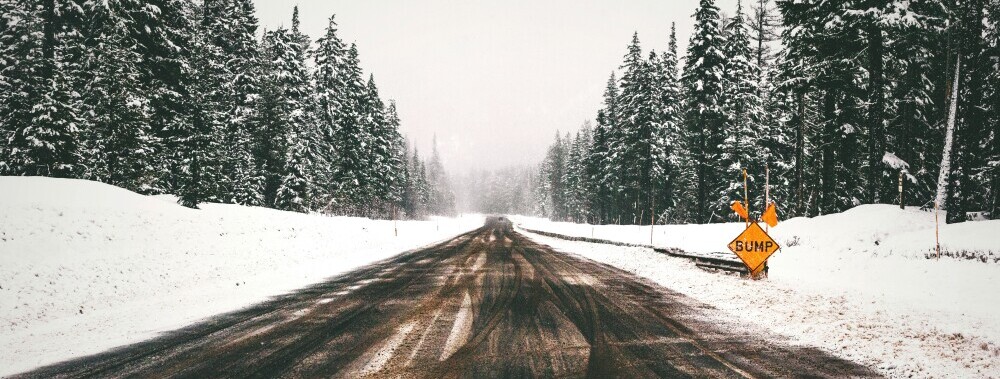
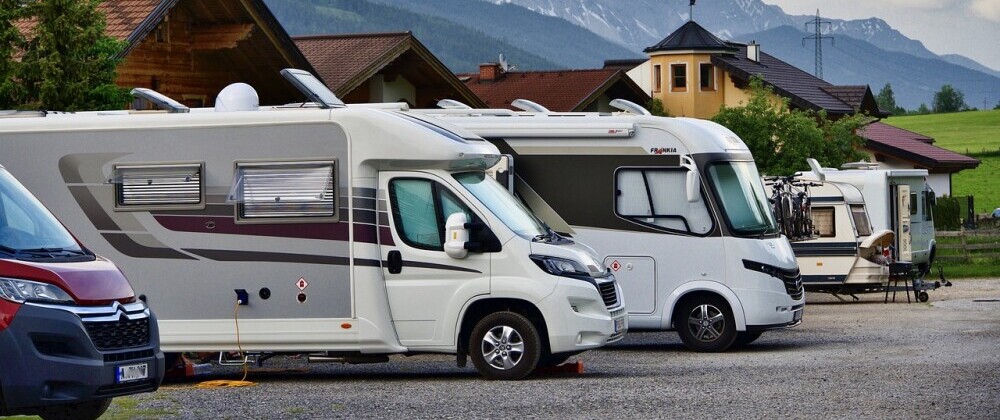

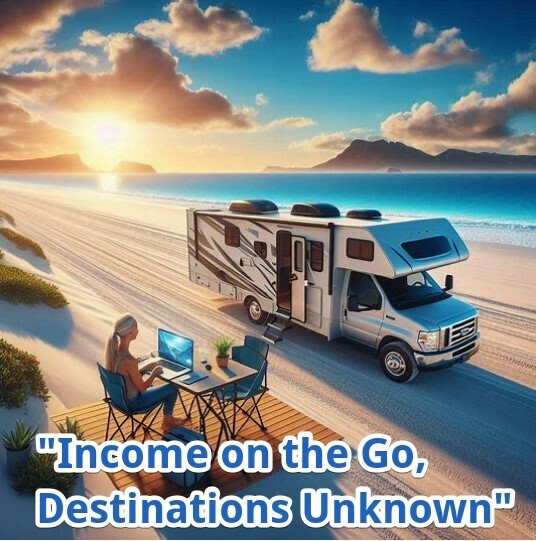
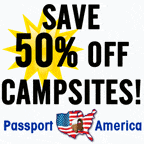
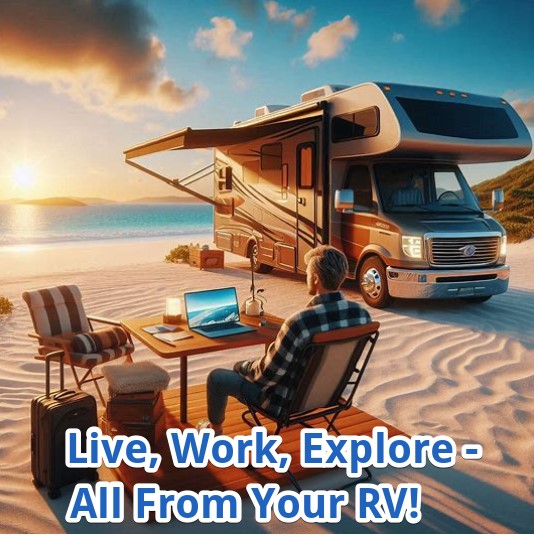
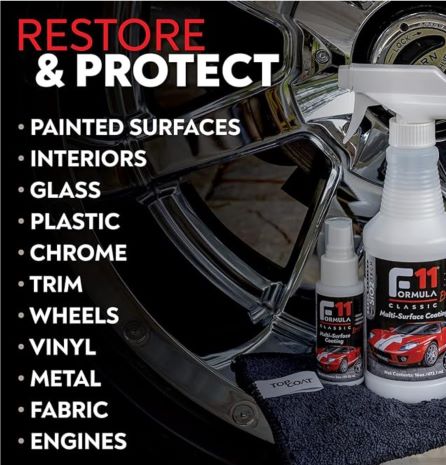
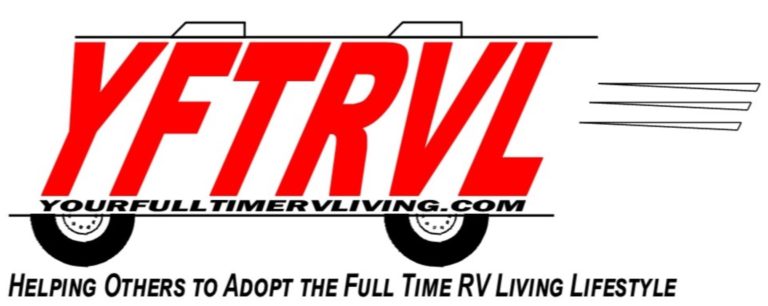



Recent Comments